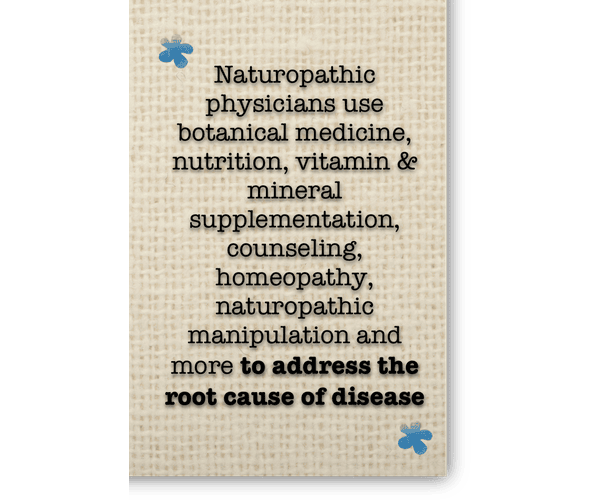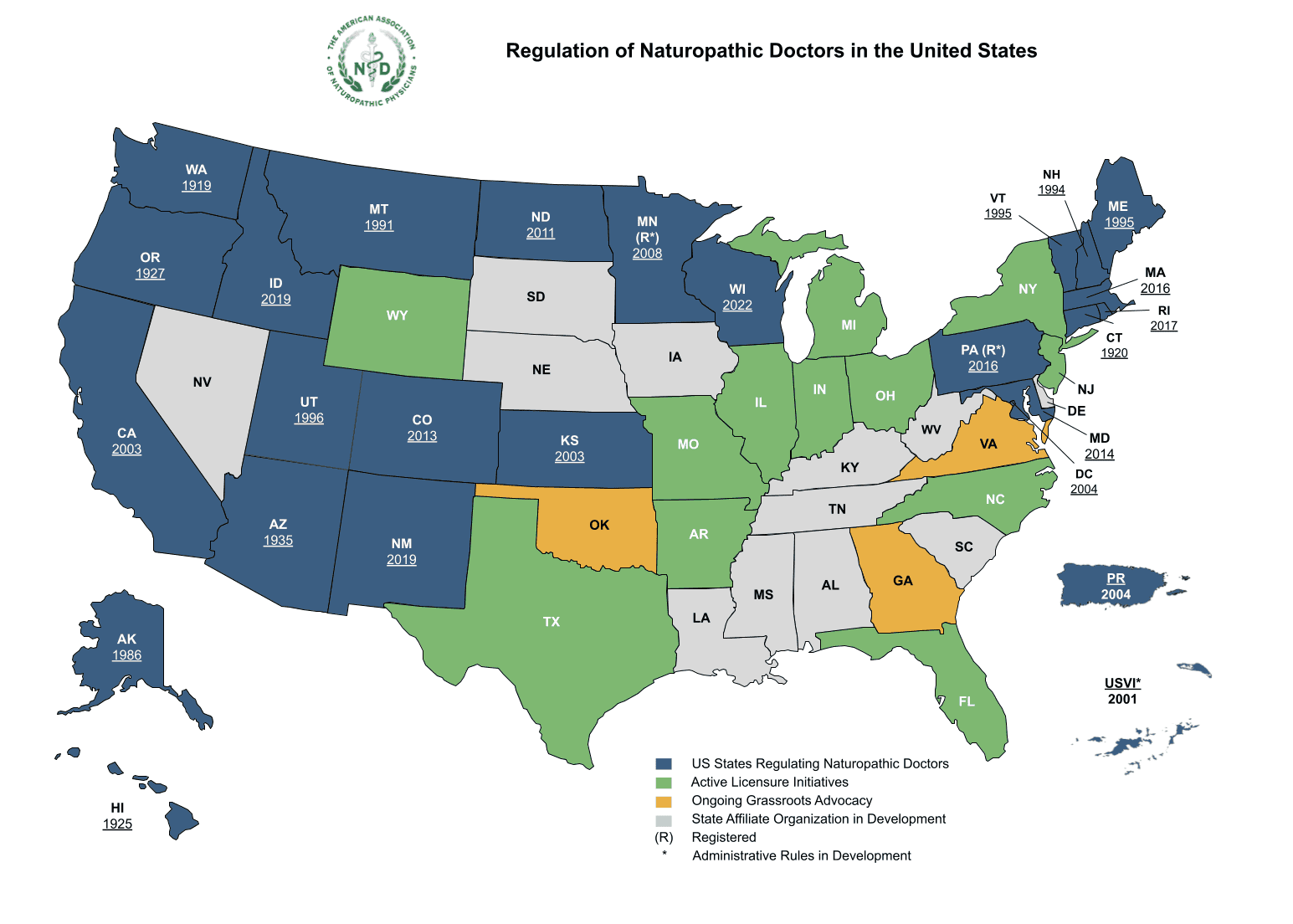The main difference in education between a naturopathic physician (N.D.) and a medical doctor (M.D.) is in the the area of specialization. By definition naturopathic physicians are specialists in natural treatment of primary care conditions. While MD students do rotations in specialty fields in their 3rd and 4th years (like Oncology, Obstetrics, Surgery, etc), ND students do clinical work in naturopathic primary care, learning huge volumes of natural health material, including medical herbs, manipulation techniques, nutrition, vitamin/mineral supplementation, and more.
Also, naturopathic care differs from conventional medical care in that we tend to avoid the use of pharmaceuticals and major surgery unless absolutely necessary. Our training includes the appropriate use of these tools, but we prefer to save them for times of absolute medical necessity.
The goal of a naturopathic physician is to determine why someone became ill in the first place. This is why a naturopathic physician typically spends 2-3x the face-to-face time with patients as does a conventional medical doctor. To treat the underlying cause ND’s use tools like counseling, botanical medicines, nutrition, homeopathy, naturopathic manipulation, vitamin/mineral supplementation, hydrotherapy and more.


